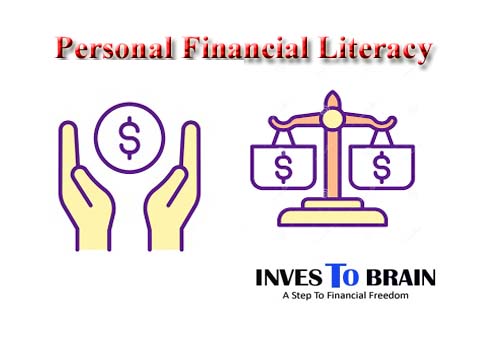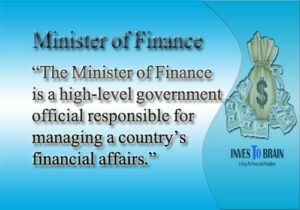Personal Financial Literacy: Overview of Personal Financial Literacy, What is Personal Financial Literacy? How Do I Learn Personal Financial Literacy? Ways to Improve Personal Financial Literacy, Personal Financial Decisions, Benefits of Personal Financial Planning? Financial Goals
Personal financial literacy should be the goal of everyone, People can improve their lives through personal financial literacy.
Personal financial learning leads to sound financial decisions. It just beginning to taking good decisions about the money.
The fact is that your today’s decisions affect your future, that is the very strong reason you need to learn about personal financial literacy and make better financial decisions for your financial wellbeing.
So You should be knowledgeable about most of the financial issues that can affect individual financial health.
Learning about personal finance improve all aspect of life in terms of money, it can give the confidence of making good financial decisions.
The capacity of financial decision-making varies from person to person and situation to situation but personal financial literacy improves your decision’s accuracy through financial knowledge.

What is personal financial literacy?
The process of building a strong foundation with money by learning and understanding effective use of various financial skills like budgeting, planning, investing, personal financial management, saving and protecting your money from fraud is personal financial literacy.
» Ready to know more? Read the full article about Best Definition of Financial Literacy.
In straightforward terms, ” Personal financial literacy is a process of educating yourself about money, So you can manage your money in the best way like you will never get any financial crisis in your life and make the good financial decisions.”
How do I Learn Personal Financial Literacy?
There are some important ways to improve your personal financial literacy.
- Read personal finance books.
- Listen to financial podcasts.
- Watch the interview of financial experts.
- Attend the financial seminars.
- Read financial newspapers and magazines.
- Take advice from financial experts.
- Always do your own research before investing your money.
- Implement what you learn from all the above sources.
Personal Financial Decisions
The day after getting your first job, You want to buy a bike or flat. How can you get money to buy it?
It all depends on personal financial decisions. these are decisions about how much money you save, invest and spend.
Your right decisions for today are helpful in building your bright future, In the same way, I want to explain to you that your sound financial decisions make you financially rich tomorrow.
Generally, People think it is easy to earn money more than you spend and that you are on the right financial path, But personal financial literacy teaches us to invest your money for your future growth.
Spending more than earning means you are going on the wrong financial path and it shows that you are not Financially Educated.
Here you can understand the importance of Financial Learning in your real life. Spending more than your earnings leads you on the path to financial broke.
You can improve the capacity of your personal financial decision by learning financial terms and implementing them.
In real life like earning as much as you can, spending money on only needed things do not waste your money on unnecessary things, and saving money for your future.
All of the concepts of money adhere to each other, Investing your money can the right decision for you. you can invest in the stock market, real estate, contribute to your retirement fund etc.
Investing earns you more money if your make good and deep research before investing and invest again and again your money which you can also earn from investing.
Taking the benefit of compounding you will have financial freedom one day.
List of some important personal financial decisions
Here is the list of some personal financial decisions that a financially wise person can take in his career.
- Building an emergency fund.
- Create a budget.
- Increase your earnings by multiple sources of income.
- Investing in retirement.
- Create a debt payoff strategy.
- Improving your credit history.
- Track spending & net worth.
- Set short-term and long-term goals.
- Invest in family health insurance.
- Invest in term insurance.
- Borrow smart and use leverages to build assets.
- understanding taxes.
- Understanding interest, credit card debt, and online commerce.
- Identity fraud and theft.
- Continuing your financial literacy learning.
What are the benefits of personal financial literacy?
Just think in a simple way, what is personal finance?
Everything in life that involves money is personal finance. Personal financial literacy help to manage money in life, manage budgeting, spending, saving and investing money.
Personal financial literacy provides financial security in life and helps us to make sound financial decisions.
Personal financial literacy has to achieve your financial goals, everyone has different goals like buying a house, or buying a car.
Personal financial literacy is important because it will help you to plan and reach your goals, no matter what they are. There are some personal financial literacy benefits:
- By learning Personal finance you have more money and financial security.
- You make good decisions on how to use the money to achieve your goals.
- You can take leverage to build more assets smartly.
- You have less chance of going into debt.
- You can get financial freedom.
Any financial step you take like saving, investing and spending personal financial literacy can help you to make good decisions.
There are six steps to reach your financial goals
STEP 1: Figure Out Your Current Financial Situation
To determine your current financial situation, calculate your net worth by creating your list related to financial items.
- Savings
- Monthly Income
- Monthly Expenses
- Debt
To calculate your net worth by Total financial money minus total debt money or a total of assets minus the total liabilities.
STEP 2: Develop Your Financial Goals
Financial goals are different for all, and the identification of your need and wants are essential. Because it helps to develop better financial practices.
To achieve financial goals is knowing the difference between your needs and wants, The financial goal should be specific and realistic because only you can decide.
For example, You want to save and invest your money, So you can save $200 every month or 10 percent of every paycheck and invest in stock for the long term.
STEP 3: Identify Your Options
It is possible to make a sound financial decision when you identify all options. Suppose you are saving $200 per month so you can take different possible actions.
- Expand the current situation. You can increase your saving from $200 to $250.
- Change the current situation. You can invest in the stock market rather than keep that money in your savings account.
- Start something new. You could use the $200 to pay off your debts.
So, the point is that you have to know which option is best for you to benefit more.
STEP 4: Evaluate Your Alternatives
In this step, to reach your financial goal. you should evaluate all alternatives in your financial planning process.
Look at your current situation and consider the risks and rewards for each financial decision you make.
Today financial information change rapidly, you need to be up-to-date with every new information that can affect your financial plan and find the opportunity to enhance your financial plan.
You should invest in your learning and skills, your knowledge and skills help you to evaluate all your options with calculating risks in your financial decisions.
Opportunity benefit of having set up a new business when the market really demands.
STEP 5: Create and Use Your Financial Plan of Action
Whatever decision or financial plan you took to achieve your financial goals. You take the necessary course of action.
For example, if you want to earn extra money, you might get a part-time job for some hours. You could earn extra money to pay off loans.
STEP 6: Review and Revise Your Plan
Every successful goal needs proper monitoring, follow-up and progress report by their milestone. Financial planning continues as you follow your plan.
Financial plans change day by day or year by year as you get older because your needs and wants are changed according to your situations.
So you have to review and revise your financial planning yearly to reach your financial goal according to your need and wants.
FAQ
Q : What should you consider to set financial goals for yourself?
Q : What are the main components of personal financial literacy?
1. Budgeting ( To track and control your spending habit )
2. Saving ( Saving for the future)
3. Investing ( invest for the long term to take compounding benefit )
4. Mortgage ( Finish your mortgage )
5. Financial Planning ( Financial planning help to reach your financial goal )
Q : Is personal financial literacy important?
You can read more about personal financial literacy from the world’s top financial educator websites Link is below…

